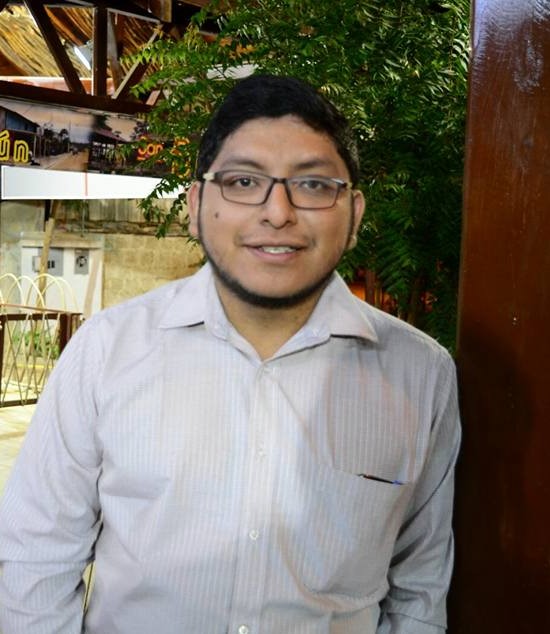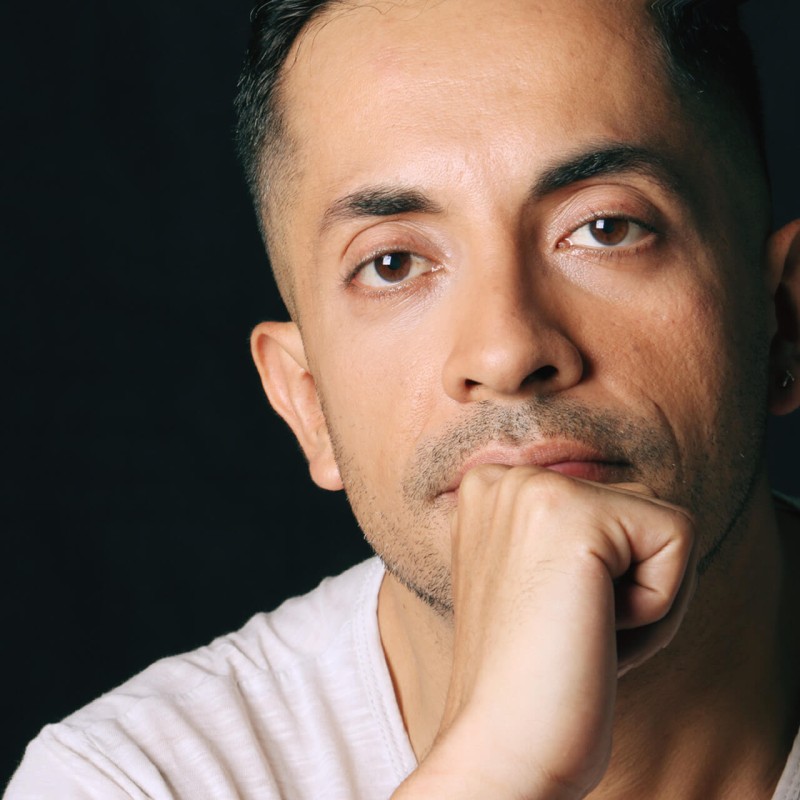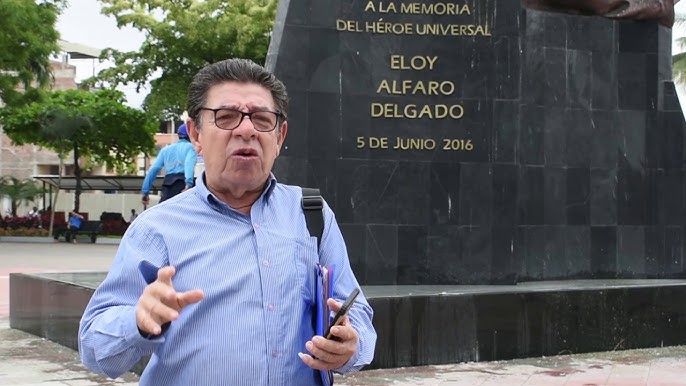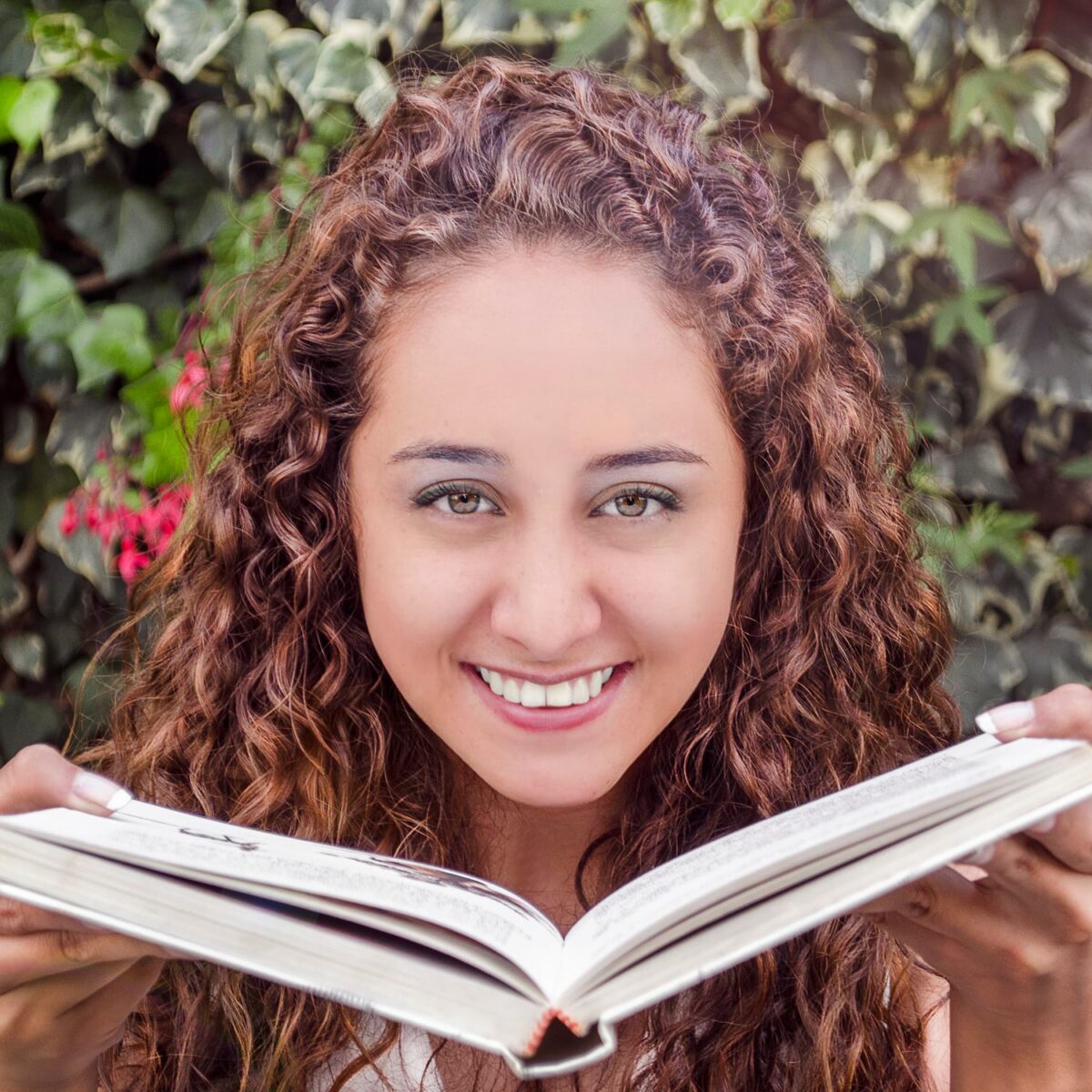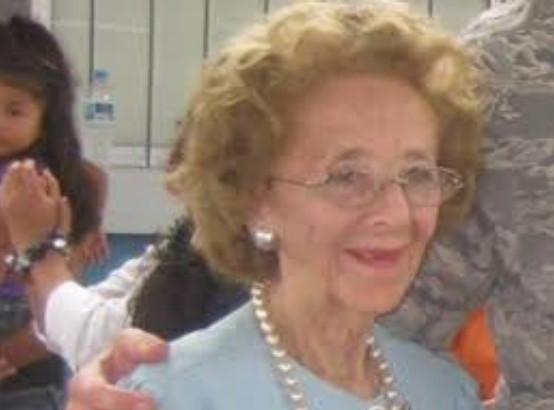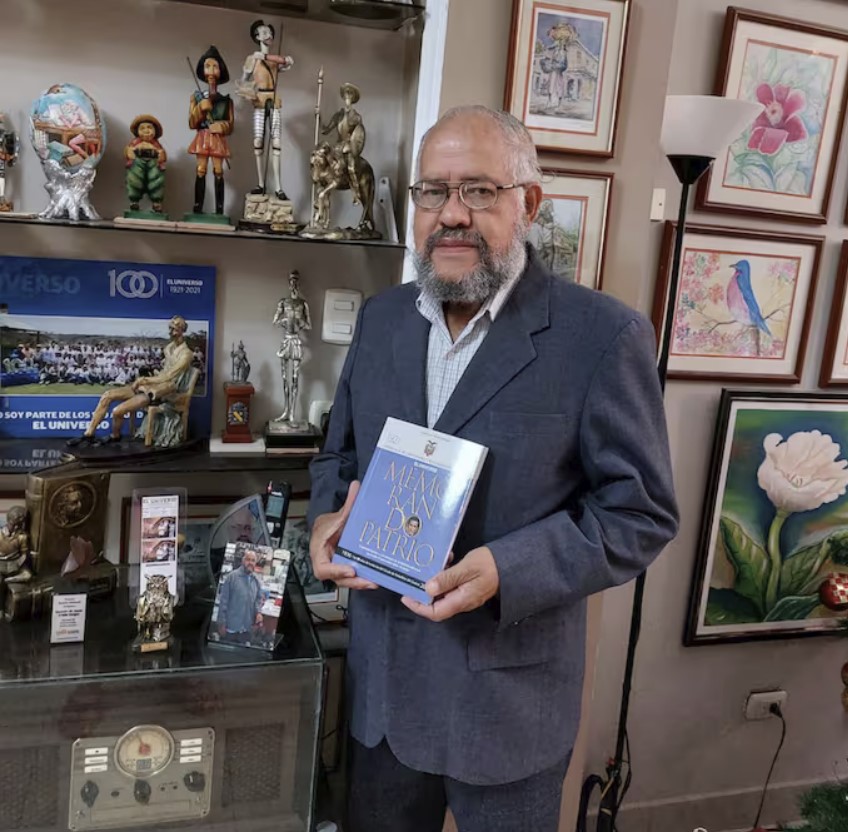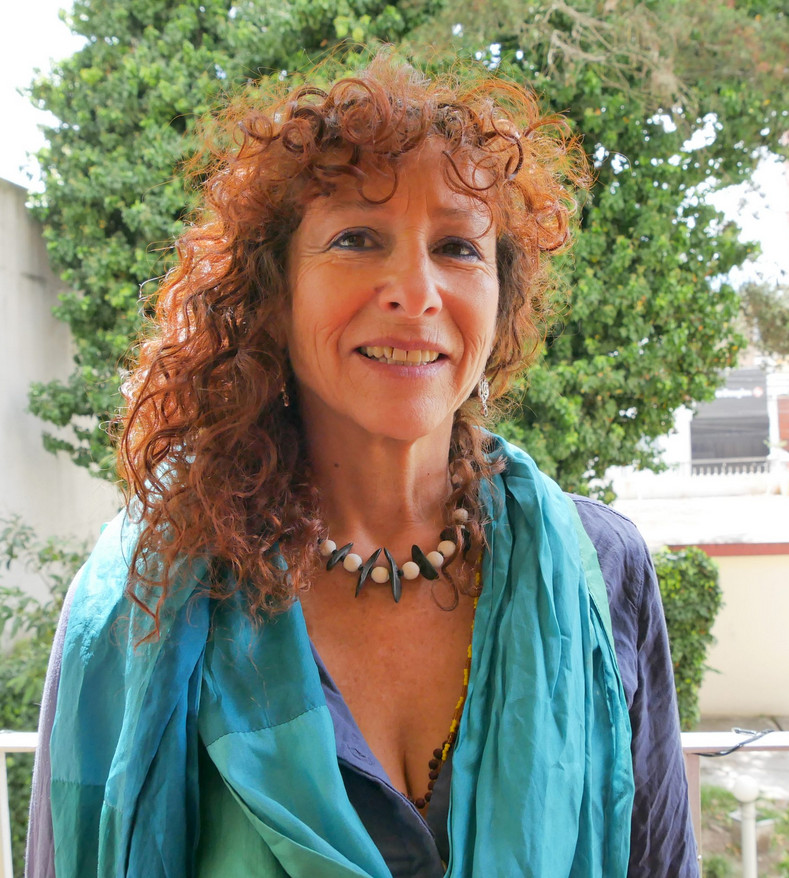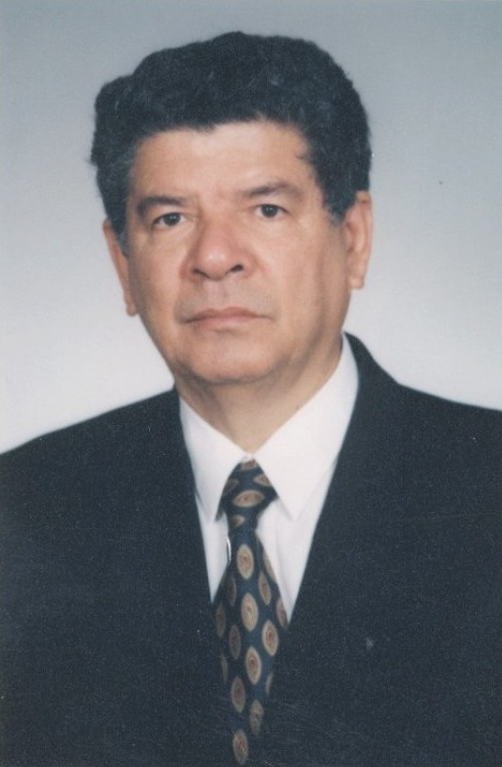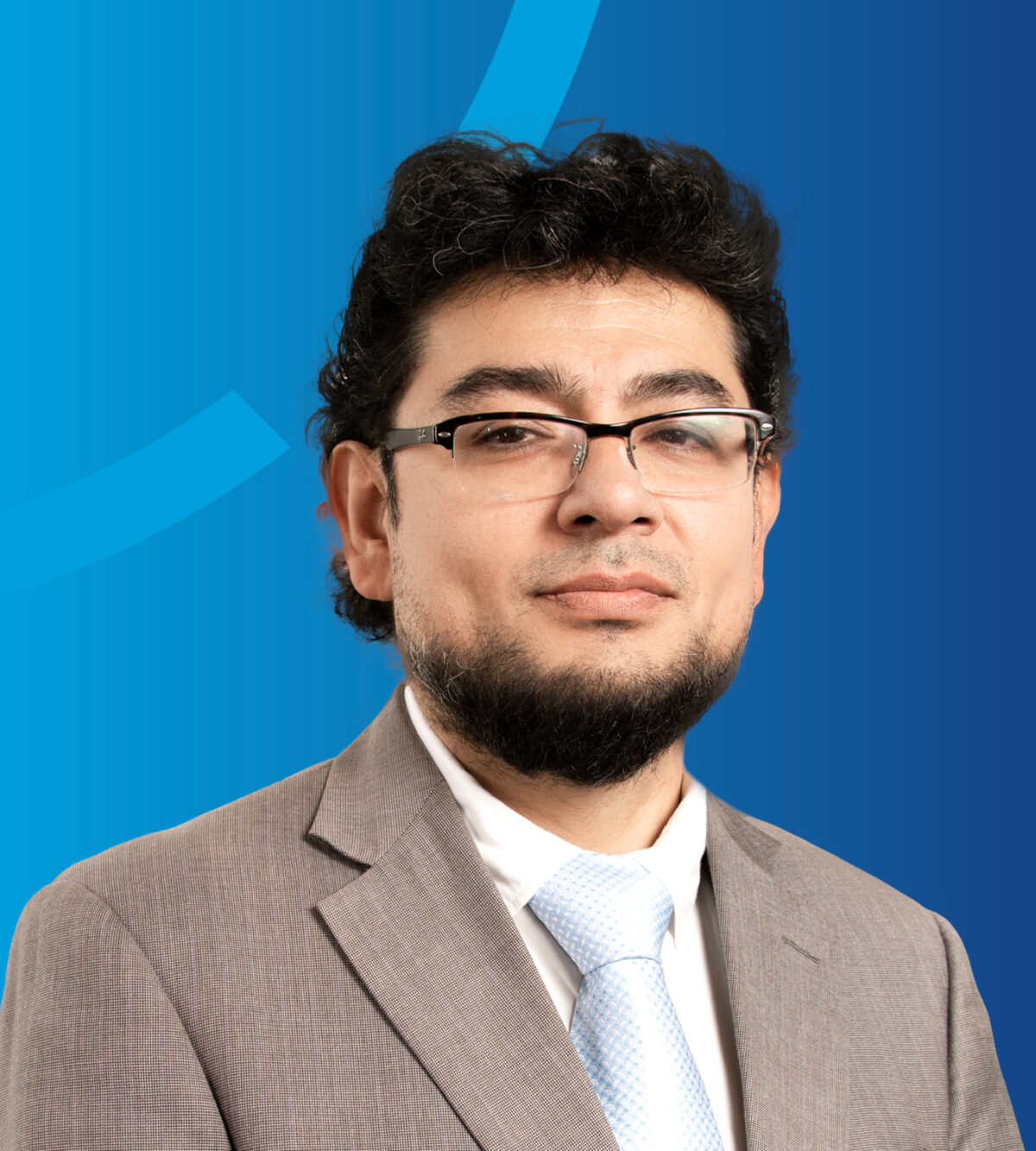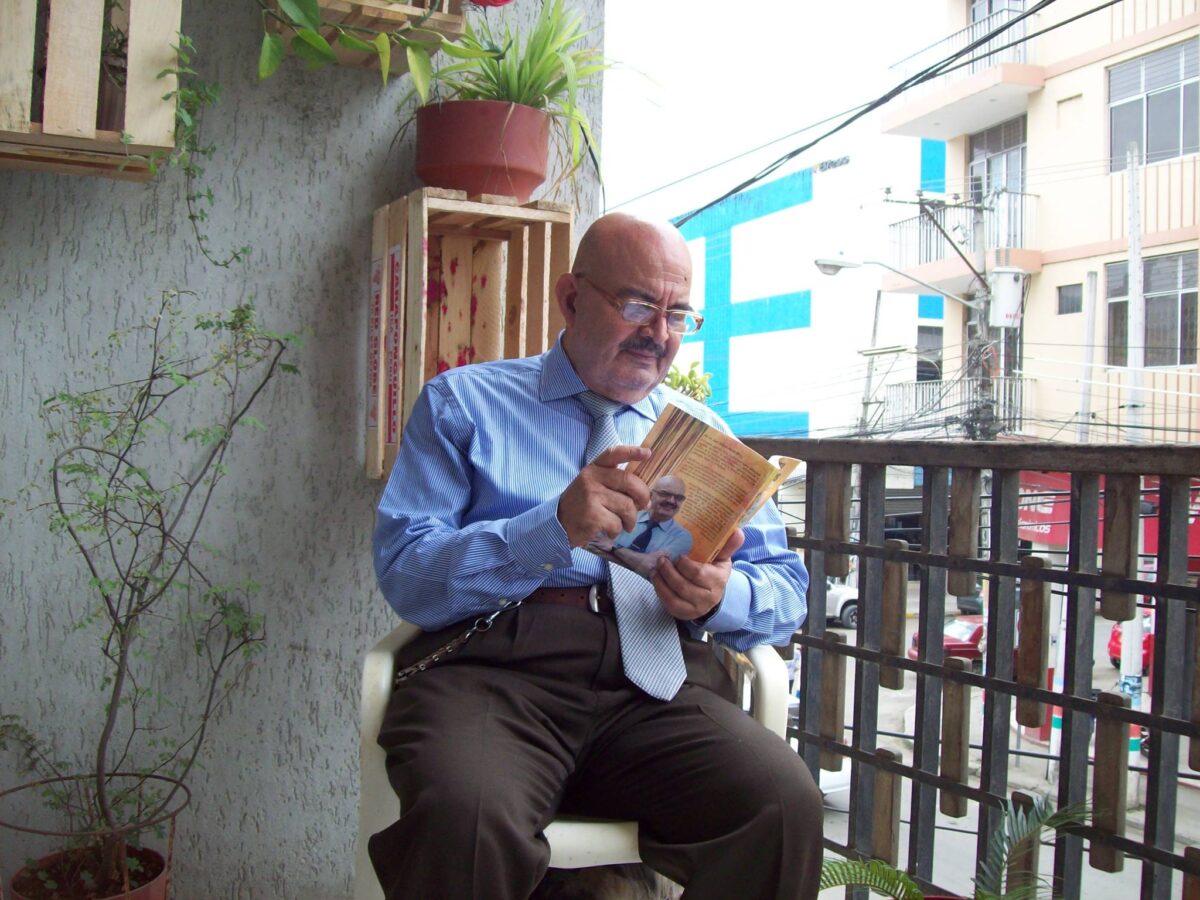Luis Franco González (Santa Rosa, Santa Elena, Ecuador, 1988) is a poet, educator, and cultural promoter whose work has garnered national and international acclaim. He is the author of several poetry collections, including Sueños Inconstantes (2011), Jardines Inconexos (2014, Premio Nacional de Poesía Emergente Desembarco), and Fragmentos para armar una ciudad debajo de un asterisco (2016, Premio Internacional de Poesía “Gilberto Owen Estrada”). His poetry often explores themes of identity and transformation, and his contributions to Ecuador’s cultural scene include organizing literary festivals such as the Encuentro Nacional de Poesía Joven Marejada. Franco’s work has been featured in various anthologies and has received numerous accolades, solidifying his reputation as a leading voice in contemporary Hispanic literature.
Continue reading “Luis Franco González”Category: 21st Century Writers
Diego Falconí Trávez
Diego Falconí Trávez (Quito, 1979) is an Ecuadorian lawyer, scholar, and writer specializing in human rights, literary theory, and comparative literature. He is an associate professor at the Universitat Autònoma de Barcelona and a researcher at the Universidad San Francisco de Quito, where he also directs the legal journal Iuris Dictio. His research explores gender studies, queer theory, Andean literature, and the intersections of law and literature. Falconí is best known for his book De las cenizas al texto: Literaturas andinas de las disidencias sexuales en el siglo XX, which won the prestigious Casa de las Américas Prize in 2016, and for his advocacy for decolonial and dissident identities in cultural and academic discourse.
Continue reading “Diego Falconí Trávez”Lorena Salazar Suquilanda
Lorena Salazar Suquilanda (Quito, Ecuador, May 6, 1983) is a poet, clinical psychologist, and human rights advocate whose work interweaves creative expression with a commitment to educational inclusion. Known for her poetry, which explores themes of resilience and human complexity, she has contributed to notable anthologies like Con Ciertas Palabras and 10 Orillas and has performed at international poetry festivals such as Casa Bukowski’s “Mujeres.” Alongside her literary endeavors, Salazar has served as a university lecturer and consultant specializing in inclusive education for vulnerable populations, with a distinguished record of roles with UNESCO, Ecuador’s Ministry of Education, and various human rights organizations.
Continue reading “Lorena Salazar Suquilanda”Carlos Alejandro Ardila
Carlos Alejandro Ardila Ardila (Portoviejo, Ecuador, August 23, 1951), often referred to simply as Carlos Ardila, is an Ecuadorian poet and cultural promoter, widely known as “El Poeta del Pueblo” for his accessible and community-focused poetry. Ardila began writing in his teens, and his career now spans over five decades, with numerous published works, including Poesía Eterna (2002), Hablemos de Amor (2011), and A Mi Manera (2017), the latter archived in the prestigious Archivo de Indias in Seville, Spain. His poetry reflects themes of romance and social awareness, capturing the lives and struggles of his community in Manabí.
Continue reading “Carlos Alejandro Ardila”María Alejandra Almeida
María Alejandra Almeida Albuja (Ibarra, Ecuador, February 16, 1992) is an Ecuadorian author and lawyer known for her contributions to children’s and young adult literature. She began her writing career at age 11 with her first published story, and has since authored numerous acclaimed books, including La habitación secreta (2014), La esfera dorada (2017), and El pez más feo del mundo (2020), many of which have received prestigious awards like the Premio Nacional Darío Guevara Mayorga. In addition to her literary work, Almeida holds a law degree from the Pontificia Universidad Católica del Ecuador and a postgraduate degree in public policy research from FLACSO, balancing her time between human rights advocacy and writing.
Continue reading “María Alejandra Almeida”Angélica Flores Zambrano
Angélica Flores Zambrano (Manta, circa 1919 – ibidem, April 11, 2013) was a celebrated Ecuadorian poet, writer, and educator known as “La Novia de Manta.” She contributed significantly to local culture by authoring hymns for various schools and organizations in Manabí. Flores also contributed articles to publications such as El Universo, El Telégrafo, El Mercurio, El Diario Manabita, and Recado Cultural de Portoviejo. She published a book of poetry and prose, Cartas de María (2001). Her legacy includes numerous awards, and a school in Manta is named in her honor.
Continue reading “Angélica Flores Zambrano”Patricia Velásquez de Mera
Patricia Velásquez de Mera, formerly Patricia Velásquez Villacís (Guayaquil, Ecuador, 1951), is an Ecuadorian poet, novelist, and visual artist. She began her literary career with the novel El Porvenir de Aniata (1996) and later published poetry collections such as Entre dos ríos (2001) and Mapa de amor y de dolor (2007) under her married name, Patricia Velásquez de Mera. In addition to her literary accomplishments, she embarked on a painting journey at age 45, adding a new dimension to her artistic expression. Often using the pseudonym “Dagor” for her online poetry and art, Velásquez de Mera’s work explores themes of love, existence, and human emotion, seamlessly blending her literary and visual artistry into a unified creative vision.
Continue reading “Patricia Velásquez de Mera”Ana María Goetschel
Ana María Goetschel Garzón is an Ecuadorian historian and professor emerita at FLACSO Ecuador. She holds a Ph.D. in Social Sciences from the University of Amsterdam and a Master’s in Andean History from FLACSO Ecuador. Her research focuses on the history of women, education, and gender studies, particularly exploring the origins of feminism and the role of punitive action in Ecuadorian history. She has authored several influential works, including Moral y orden: La delincuencia y el castigo en los inicios de la modernidad en Ecuador (2019) and Cartas Públicas de Mujeres Ecuatorianas (2013), and has received numerous accolades, including the Premio Manuela Sáenz in 2019.
Continue reading “Ana María Goetschel”Germán Arteta Vargas
Germán Arteta Vargas (Guayaquil, Ecuador, 1940) is a prominent Ecuadorian historian, journalist, educator, and author. Known for his dedication to preserving Ecuadorian history and culture, he has published several influential works, including Guayaquil nostálgico (2009), Cantos a Guayaquil (2011), and Qué chévere (2012). His writing often focuses on civic education, folklore, and national identity. In 2019, he was inducted as a Corresponding Member of the National Academy of History in recognition of his contributions to the historical and cultural heritage of Ecuador.
Continue reading “Germán Arteta Vargas”María Eugenia Paz y Miño
María Eugenia Paz y Miño (Quito, Ecuador, 1959) is an Ecuadorian writer and anthropologist known for her contributions to literature and cultural studies. She has published notable works across various genres, including the acclaimed novel La puerta del Ilaló (2008) and the political thriller Que no quede huella (2020). Paz y Miño’s writing often intertwines her anthropological background with her literary pursuits, exploring themes of culture, politics, and human relationships. She has received several prestigious awards, such as the Rumiñahui de Oro and the Fondo Editorial del Ministerio de Cultura del Ecuador.
Continue reading “María Eugenia Paz y Miño”Rodolfo Bueno Ortiz
Rodolfo Bueno Ortiz (Esmeraldas, 1937) is an Ecuadorian mathematician, writer, and intellectual. He became the first Ecuadorian to earn a degree in mathematics after studying in the Soviet Union, where he also developed a deep interest in literature. Bueno is the author of several works, including Pasiones a la sombra del Kremlin (1999), a novel that explores themes of desire and power against the backdrop of Soviet life, and Mojiganga (2011), a political satire. He has also written extensively on historical and political topics, blending his scientific rigor with philosophical and social commentary, and was awarded the Pushkin Medal in Russia for his cultural contributions.
Continue reading “Rodolfo Bueno Ortiz”Carlos Aulestia
Carlos Hugo Aulestia Páez (Quito, 1973) is an Ecuadorian writer, literary critic, and professor. He holds a Ph.D. in Latin American Literature from the Universidad Andina Simón Bolívar and is currently the dean of the Faculty of Communication, Linguistics, and Literature at the Pontificia Universidad Católica del Ecuador. Aulestia has authored works spanning fiction, poetry, and essays, including the novel La obscuridad (2016) and the short story collection Flaquita my love (1995). His research focuses on Ibero-American literature, with a notable contribution through his doctoral thesis on Ecuadorian poets Medardo Ángel Silva, César Dávila Andrade, and David Ledesma Vásquez.
Continue reading “Carlos Aulestia”Wadía Lauando Vélez
Wadía Antón Lauando Vélez (Portoviejo, 1940) is an Ecuadorian poet and novelist renowned for his works that explore rural life, nature, and mythology, with a focus on the cultural heritage of Ecuador’s coastal Montubio region. His notable publications, such as Corazón de colibrí (2006) and Laberinto de los sueños (2011), showcase his lyrical style and deep connection to the Manabí region. In 1994, he founded the Provincial Poetry Contest “El Poeta y Su Voz” while serving as President of the Casa de la Cultura in Manabí and later served as Director of its Literature Section, actively promoting Ecuadorian literature.
Continue reading “Wadía Lauando Vélez”María Leonor Baquerizo
María Leonor Baquerizo Díaz Granados (Guayaquil, 1960) is an Ecuadorian writer, professor, and empowerment coach. She is known for her contributions to Ecuadorian literature, particularly in the genre of short stories, where she explores psychological themes and human emotions. In addition to her literary work, she teaches at the Universidad Católica de Santiago de Guayaquil and ITS, and directs programs at Empowerment Coach Consultant. Her works, such as “Solo quería entender” and “Las grandes cosas se pierden en la niebla”, have earned her recognition as a significant figure in Ecuador’s literary scene.
Continue reading “María Leonor Baquerizo”Viviana Cordero
Viviana Cordero (Quito, August 3, 1964) is an Ecuadorian writer, playwright, and film director. She studied Modern Literature at the Sorbonne in Paris and began her career in 1990 by co-producing Sensaciones, the first Ecuadorian feature film made in 35mm. Cordero is known for her novels, including El Paraíso de Ariana (1994), El Teatro de los Monstruos (2000), and Mundos Opuestos (2010), as well as for her significant contributions to Ecuadorian theater and cinema. Her works explore themes of identity, memory, and societal roles, particularly focusing on women’s experiences.
Continue reading “Viviana Cordero”
